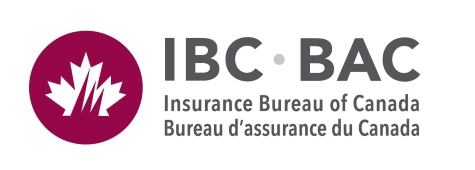Immediate action is required to protect Canadians from the impacts of climate change
EDMONTON, AB, Sept. 20, 2022 /CNW/ - Storms that hit Western Canada this summer are expected to result in over $300 million in insured damage, according to initial estimates from Catastrophe Indices and Quantification Inc. (CatIQ). In addition, new estimates from CatIQ indicate that the July 2, 2021, hailstorm and flooding in Calgary resulted in over $600 million in insured damage, more than double the initial estimate. That makes it one of the top-10 costliest weather events in Canadian history.
The following storms have been designated as catastrophes (events where insured damage estimates total more than $30 million) by CatIQ.
Strong thunderstorms developed over Alberta and Saskatchewan, with hot and humid conditions facilitating the creation of large supercell-type storm cells. At least one damaging tornado was confirmed near Bergen, Alberta, and large hail damaged vehicles and homes in Ponoka and Oyen. Additional tornadoes occurred in Saskatchewan, along with local flash flooding.
A series of severe thunderstorms tracked across the Prairies, bringing heavy rain, very large hail and damaging winds. At least one tornado was confirmed, along with a damaging downburst in Alberta. Large hail damaged homes and shattered windows in Ponoka, Alberta, while several tornadoes were confirmed in Saskatchewan.
A system tracking across much of Western and Central Canada left a trail of damaging severe weather in its wake. Tornadoes were confirmed in Alberta, Ontario and Quebec, and large hail, heavy rain and flooding occurred at points in between. Reports of damage to homes, other structures, trees and power lines stretched from Southern Alberta to Quebec's Gaspé Peninsula.
A disturbance tracking from the Canadian Rockies across the central Prairies sparked a cluster of severe thunderstorms over the course of several days. At least two tornadoes were reported, along with large hail and flooding.
Severe thunderstorms in Central Alberta damaged windows with very large hailstones. Several storm cells also produced wind gusts at speeds above 100 km/h, as well as heavy rain and flooding. The storm drifted as far east as Saskatoon, Saskatchewan, over the course of two days. Dozens of cars were severely damaged along Highway 2 in Alberta, along with properties from Central Alberta to Central Saskatchewan.
IBC reminds consumers that damage caused by wind and rain is typically covered by home, commercial property and comprehensive auto insurance policies. Insurers continue to work diligently through the entire claims process to help clients impacted by these storms.
Insurance claims from severe weather have more than quadrupled across Canada since 2008. The new normal for insured catastrophic losses in Canada has reached $2 billion annually. In the past 10 years, five of the most costly severe weather events occurred in Western Canada totaling in excess of $8 billion in insured damages. Alberta in particular has experienced more severe weather events this decade than any other region in Canada. IBC continues to advocate to governments at all levels on the urgent need to do more to prioritize investments that build resilience and better protect families and communities from a changing climate.
The amount of insured damage is an estimate provided by CatIQ (www.catiq.com) under license to IBC.
"Our thoughts are with those whose lives have been disrupted and whose homes have been damaged. Canada's insurers are always here to help residents recover from these storms. IBC has been there from day one and will provide continued support during this difficult time. Anyone affected by these storms who has questions about their home, auto or business insurance, should call their insurance representative or call IBC's Consumer Information Centre at 1-844-2ask-IBC. We're here to help." – Aaron Sutherland, Vice-President, Pacific and Western, Insurance Bureau of Canada (IBC)
"The July and August storms are a sobering reminder of the increasing risks facing communities across Canada. While the longer-term impacts of the climate crisis must be addressed, considering the increasing number of near-daily extreme weather events already occurring across Canada, we cannot wait to limit the impacts of climate change." – Craig Stewart, Vice-President, Climate Change and Federal Issues, Insurance Bureau of Canada (IBC)
Insurance Bureau of Canada (IBC) is the national industry association representing Canada's private home, auto and business insurers. Its member companies make up the vast majority of the property and casualty (P&C) insurance market in Canada. For more than 50 years, IBC has worked with governments across the country to help make affordable home, auto and business insurance available for all Canadians. IBC supports the vision of consumers and governments trusting, valuing and supporting the private P&C insurance industry. It champions key issues and helps educate consumers on how best to protect their homes, cars, businesses and properties.
For media releases and more information, visit IBC's Media Centre at www.ibc.ca. Follow us on Twitter @InsuranceBureau or like us on Facebook. If you have a question about home, auto or business insurance, contact IBC's Consumer Information Centre at 1-844-2ask-IBC.
SOURCE Insurance Bureau of Canada

Brett Weltman, Manager, Media Relations, IBC, [email protected]

Share this article